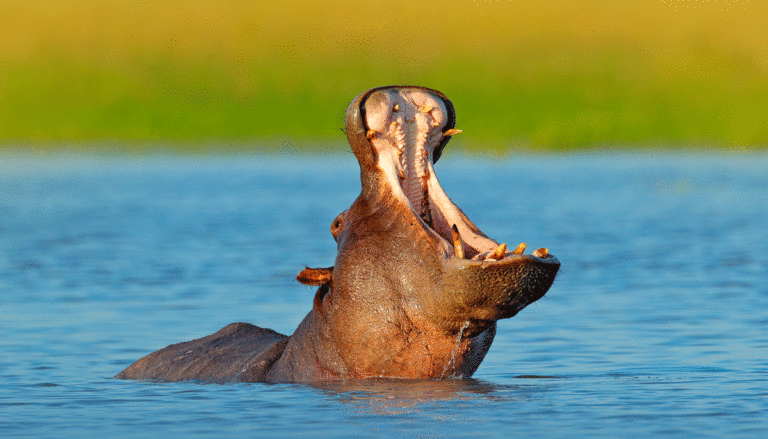Notorious drug kingpin Pablo Escobar used his significant wealth to create his own private zoo at his Columbia estate with a vast array of wild animals. But his so-called “cocaine hippos” has ignited a global debate.
Drug lord’s exotic estate
Pablo Escobar was a Colombian drug lord and narcoterrorist, the sole leader of the notorious Medellín Cartel. During the 1980s and early 90s, he was the world’s most powerful drug trafficker, according to Britannica. His net worth was estimated at $25 billion.
With such wealth, Escobar lived a lavish lifestyle. His $63 million, 7,000-acre estate in Columbia called Hacienda Nápoles had a tennis court, bullfighting arena, artificial lakes, a soccer field, and a private zoo.
Drug lord’s zoo and hippos
Escobar’s private zoo housed numerous wild animals including elephants, zebras, giraffes, ostriches, flamingos, kangaroos, and four hippopotami, the Washington Post reported.
But when Escobar was killed in 1993, most animals were relocated except for the so-called “cocaine hippos,” NPR reported.
What are the cocaine hippos?
Despite the moniker “cocaine hippos,” an unfortunate nickname they were called by a judge in the U.S. District Court for the Southern District of Ohio, it’s not because the hippos were given cocaine. It was that they were owned by a cocaine trafficker.
Hippos left on their own and population exploded
The four hippos from Escobar’s zoo were not relocated. Authorities thought the animals would eventually die. They were left to survive on their own along the Magdalena River. Instead of dying, they thrived. The herd of four hippopotami eventually ballooned into its current population of as many as 120. In fact, it amounted to the biggest community of hippopotamuses outside of their native Africa. The semi-aquatic mammals prospered in the absence of natural predators in South America. Researchers believe the favorable weather may have induced the hippos to reproduce at a younger age.
Animals recognized as “interested persons” in US court
What makes the situation so unique is that they were recognized by a United States court as “interested persons,” the first of its kind in US legal history.
The recognition as interested persons was a designation that had been sought by the Animal Legal Defense Fund, as part of an effort to have the American legal system recognize ‘enforceable rights’ for animals.
Are hippos an invasive species?
Locals and some animal researchers say the animal should be left alone, arguing they fill an ecological void. At the same time, conservationists are trying to control their population over concerns about people and the environment. It has sparked a debate in ecology about what designates an invasive species.





